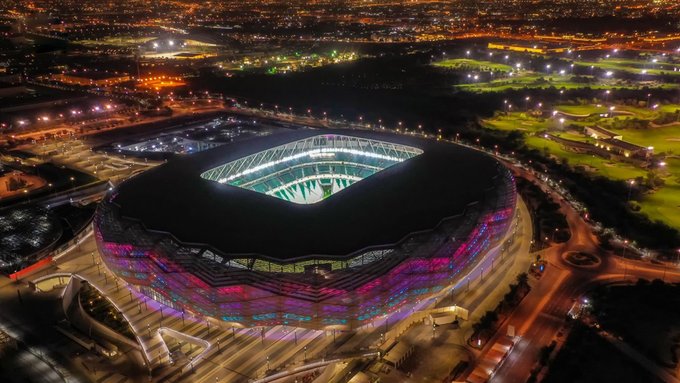The stadium saw a cumulative attendance of around 350,000 people during the World Cup tournament.
The iconic Education City stadium will be transformed by Qatar Foundation into a place for girls and women to play sports and host events geared towards improving both the physical and mental health of women.
This comes as a part of Qatar’s ongoing efforts to make sports accessible and inclusive to all, Alexandra Chalat, director of World Cup Legacy at Qatar Foundation, told local Arabic daily Arrayah.
“Providing opportunities for women in Education City has always been a priority for Qatar Foundation, particularly in the fields of education and psychological health. At the moment, 72% of teachers and employees are female. In its universities, women make up the majority of both the teaching staff and the students enrolled in higher education,” Chalat said.
She continued by saying that QF aims to empower girls and women through sports by developing a destination that caters to their requirements for amenities, sportswear, and lifestyle.
“We want to understand and appreciate women’s needs and make it easy for them to exercise in a way that suits their needs, which may be represented by some of them preferring to train in women’s-only training areas, wearing specific sportswear, or having other exercise-related needs,” she explained.
Additionally, the stadium will host kid-friendly educational events.
After being renovated, the stadium will attract female athletes from all over the region. A school sports academy and a dedicated training facility to improve women’s athletic performance will also be established. QF closely collaborates with all parties involved to support the Qatari sports system.
“We will work to make sure that women have a variety of options available to them, starting with providing training facilities for national teams, moving on to hosting significant international events, and providing opportunities for training and arbitration. In order to benefit from their experiences and suggestions, QF is collaborating with numerous local and international organisations and experts, in addition to former sports advisers,” she said.
No ‘white elephants’
Secretary General of the World Cup organising body, Hassan Al Thawadi, previously said every stadium built for the tournament complied with sustainability standards to ensure use afterwards.
“We have recycled and reused wherever possible and implemented a vast range of energy and water efficiency solutions,’” he stated in a document on the stadiums.
“We have used materials from sustainable sources and implemented innovative legacy plans to ensure our tournament doesn’t leave any ‘white elephants’,” he said, referring to a term used to describe an expensive possession of no use.
As part of a sustainability initiative, the majority of the 2022 World Cup’s venues will reduce their post-tournament capacity from 40,000 to 20,000.
Authorities in Qatar have promised to provide 170,000 of removed seats from stadiums to underdeveloped nations.
“(They) will be offered to countries who need sporting infrastructure,” Ali Al Dosari, the stadium’s director of installations, said in a press release. “This will allow the culture of soccer to be promoted and to a greater extent the love of sport throughout the world.”







